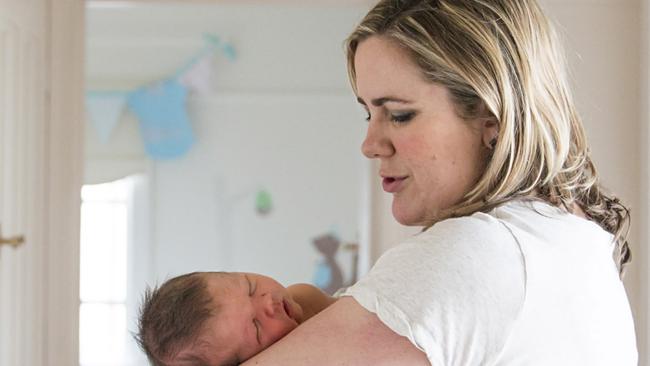Cabrini study finds surprising concerns for mums after pregnancy complications
Women who have these pregnancy complications should do this — it could save their lives.
Victoria
Don't miss out on the headlines from Victoria. Followed categories will be added to My News.
Women who have complications in pregnancy such as gestational diabetes or high blood pressure are known to be at increased risk of heart disease later in life.
But now new research out of Victoria warns they should be having regular heart health checks at female-specific clinics in the years after they deliver as it could save their lives.
The study of Victorian mothers by a team led by Cabrini Health’s Dr Swati Mukherjee was recently published in the Journal of the American Heart Association.
It found for the first time that attending a female-specific heart clinic had the potential to improve long-term cardiovascular disease outcomes in women with past pregnancy‐related complications which put them at a high risk for heart disease.

Dr Mukherjee said it was important the clinics were women’s heart clinics as research showed female patients did better with female doctors. She said the flexibility of seeing a cardiologist, cardiac nurse and dietitian on the same visit at women’s heart clinics also made compliance easier for busy young mothers.
The cardiologist said the women in the study, aged between 30 and 55 years, attended a multidisciplinary women’s heart clinic at Cabrini Health and The Alfred where they had checks including blood pressure and cholesterol levels. Exercise, diet and lifestyle were also addressed.
The 150 women involved all had a past diagnosis of hypertensive disorders of pregnancy, gestational diabetes, or a small‐for‐gestational age baby born at Cabrini and other hospitals in Melbourne’s southeast.
“All were six to 10 times more at risk of a heart attack, so this study saves lives,” Dr Mukherjee. “The call to action is for women who have had these pregnancy complications to be followed up regularly post pregnancy.
“Heart checks happen during pregnancy, but often taper off after that.”
She said the surprise from the study was that 40 per cent of the mothers were found to have underlying health issues that they were unaware of.
“Significantly, we found a large number of the women had untreated hypertension (blood pressure) and hypercholesterolaemia (high cholesterol),” Dr Mukherjee said.

Three per cent of the cohort were also unaware they had diabetes.
“We know these findings translate into a much higher than average risk of heart attacks,” Dr Mukherjee said.
“I think we underestimate as a community that heart disease takes three times as many lives of women as breast cancer.
“Pregnancy doesn’t put them at increased risk (of heart attack) but it unmasks metabolic diseases like high blood pressure and diabetes.
“Although the blood pressure and sugar levels might normalise after the baby is born, these women remain at high risk of early development of diabetes, high blood pressure and other risk factors.”
Occupational therapist Kaye Jones was one of the mums on the study. She said it may have saved her life.
Her father Gordon Wilson died of a heart attack two years ago, aged just 65. She said it was sudden and there was no warning he had heart disease.
“A couple of weeks after dad died, I received an invitation to participate in this study,” Mrs Jones said.
“It seemed like a sign that I needed to look into my heart health also.”
Mrs Jones was found to have hypertension. She has since changed her diet and says both she and husband Stuart exercise more and have lost weight to lower the risk of heart disease.
Following the publication of the Victorian study, the Journal of the American Heart Association said the findings should encourage randomised controlled trials.
“At least for now, we appreciate that cardiovascular health in women with pregnancy‐associated disorders is an actionable item on the health agenda,” the authors wrote.
“Despite the scientific evidence, not much progress has been made in using this knowledge to improve health outcomes. The time is ripe to focus on implementation.”
Originally published as Cabrini study finds surprising concerns for mums after pregnancy complications





